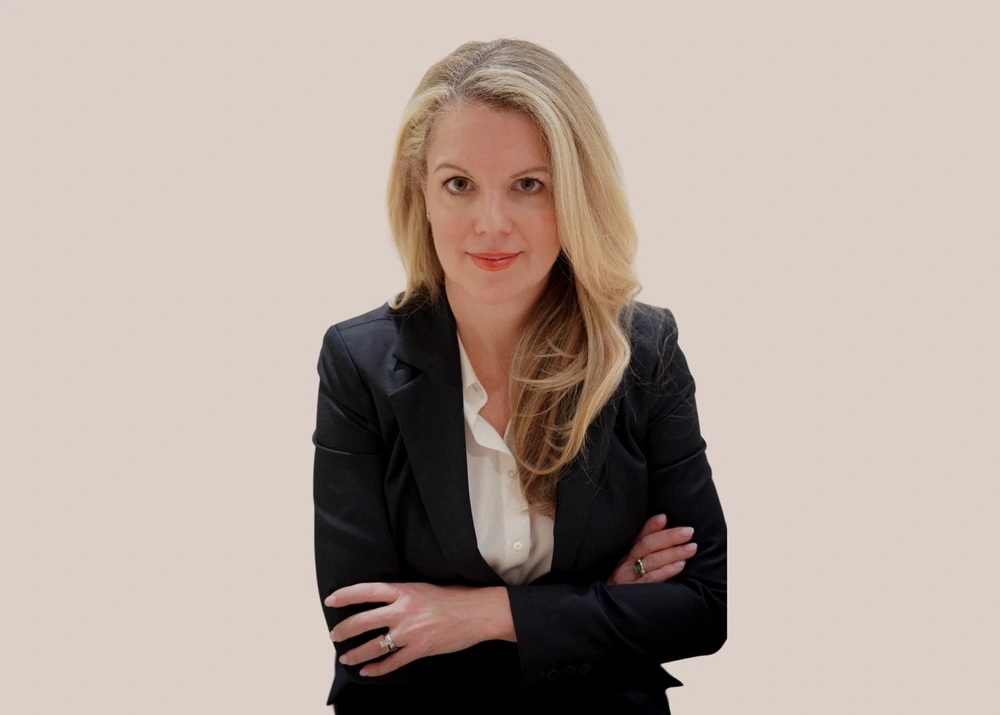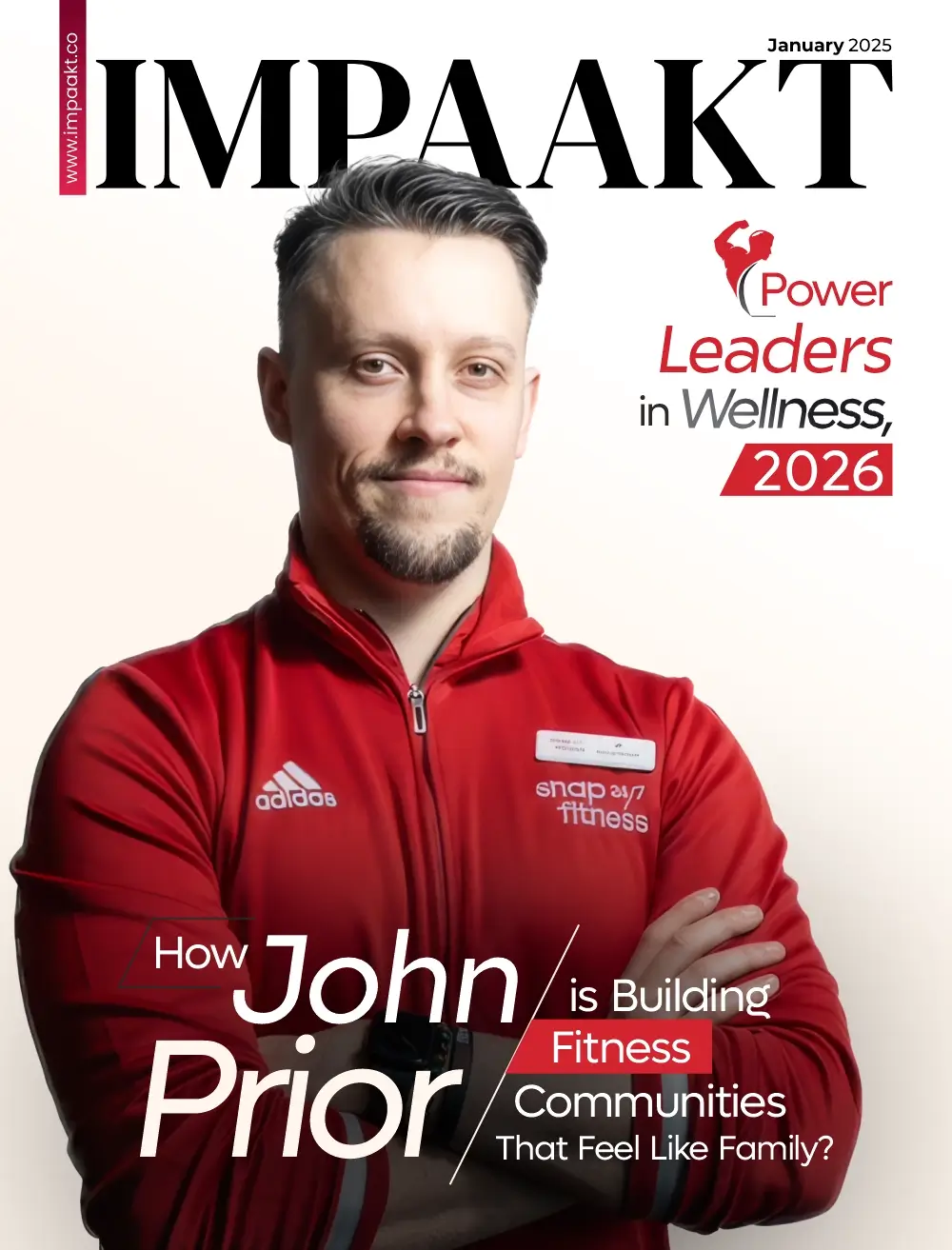Sustainability leadership in 2024 has become more necessary than ever, but it is not without its challenges.
With the prospect of stricter regulations in the US and EU, where sustainability practices have moved beyond the financial scorecard, it is high time that corporates and even growth-phase startups adapt to sustainability as the way forward for better positioning with market stakeholders.
As rightly said, “Sustainability leadership needs to change from ‘bolted on’ to ‘built-in’”—and so does sustainability communication, which is essential to enlisting decision-makers within every level of a company and across global value chains. Standing true to this commitment, Anna Clark, Vice President & Sustainability Practice Leader at Cooksey Communications, is leading the way by building a practice on the foundation of Cooksey’s track record of sustainability reporting.
Anna is an author, columnist, and fellow at Hunt Institute for Engineering & Humanity, and she believes in being a changemaker for her community. At Cooksey, Anna not only supports clients with creative and insightful PR campaigns but also empowers businesses to be prepared with sustainability strategies. Her visionary approach and passionate leadership are evident in her clients’ success, which she also attributes to Cooksey’s longstanding expertise in solving complex challenges with confident communications counsel.
To learn more, check out the interview highlights below:
Anna, can you briefly describe your journey in sustainability communications? How did you become interested in this area, and what motivated you to specialize in sustainability?
Sustainability has been my passion since 2005. That year, having my first child opened my eyes to the damage of overconsumption on the earth. What until then had been a concern over pollution became an urgent need to improve the quality of our air, water, and soil—elements that sustain life.
Researching the effects of human activities on the climate led me to see the unintended consequences of doing business as usual. At the same time, my early career in management consulting taught me that improving business performance benefits both companies and society, so I knew engaging in the private sector was a critical part of the solution.
Eventually, I shifted my career path to communications, a function with underutilized potential to further sustainable business. After writing my first book, “Green, American Style: Becoming Earth-Friendly and Reaping the Benefits,” I pursued a master’s degree to hone my specialty in the emerging field of sustainability communications. It’s a natural fit for someone bent on doing better business, building better brands, and creating a better world.
Given your experience in management consulting at IBM and roles in prominent PR agencies, how has your past professional background influenced your approach to sustainability communications at Cooksey Communications?
We all want to work in our sweet spot. Mine is the nexus of corporate performance and reputation. Going back to 2005, after reading an article on the efforts of retail giants like Walmart and Home Depot to green their supply chains, I saw an opening in the market to help suppliers become more sustainable. That was still early in the movement, and some pioneering companies helped me see the opportunity ahead. I launched a boutique firm, EarthPeople Media, that same year to develop sustainability strategies for startups and small and mid-sized businesses.
Thirteen years later, I joined a global PR firm and worked on CSR programs and ESG reports for multinationals. I kept learning and growing, and in 2023, I joined Cooksey Communications to launch a new Sustainability Practice.
What drew you to join Cooksey Communications, and how do you see the firm’s values aligning with your vision for sustainability communications?
What I appreciate most about Cooksey is the caliber of our team. The CEO and president regard sustainability as important, and we have a track record in sustainability reporting with our award-winning ESG report for Dallas Fort Worth International Airport.
My timing in joining Cooksey was fortuitous. The owners invited our leadership team to help update our core values for the agency’s 30th anniversary.
Our new value of “impactful connections” perfectly aligns with sustainability; both focus on creating positive impacts in communities. Cooksey’s expertise in strategic communications goes well beyond “just PR.” Creating impactful connections means deepening relationships among clients and their stakeholders, which builds trust and transparency—building blocks for collaborating for a sustainable future.
The Sustainability/ ESG Assessment, Planning & Reporting package is a notable offering of the Sustainability Practice. How does Cooksey’s approach to sustainability positioning differentiate compared to other firms in the industry?
Cooksey is a firm with Texas roots and a global outlook. We demonstrate this as a member of the Global Reporting Initiative (GRI) Community with certified expertise in the GRI Standards, the leading sustainability reporting framework used by more than 10,000 reporters, including 78% of the world’s 250 largest companies.
Using these standards to guide messaging and reporting ensures that our clients do not misrepresent their organizational impacts, giving them the confidence to speak up – whether to demonstrate compliance or capture a competitive advantage.
How does Cooksey’s Sustainability Practice cater to the diverse needs of clients, including CSR/ESG/Impact reports?
We are well-versed in the vernacular and politics of our region, which enables clients to trust our counsel in communicating about complex issues. No one-size-fits-all approach to sustainability communications – or effective communication in general – will work. That’s why we’ve designed our offering to meet a wide range of needs for the types of entities we serve.
We specialize in serving 1) Professional Services clients such as law firms, financial services firms, A/E/C (architecture/engineering/construction) firms, and other B2B and B2G service providers; 2) Public Sector clients including governmental entities and educational institutions, as well as planning and advocacy groups dealing with critical infrastructure issues such as transportation, water supply, flooding and energy; and 3) Real Estate & Development clients such as commercial and residential real estate firms and economic development agencies. We also work with prominent nonprofits.
As a leader of the Sustainability Practice, how do you see the evolving demands of local and global stakeholders impacting the strategies and messaging needed for success in today’s business environment?
In this era of political polarization, loaded terms like “DEI” and “ESG” create a conundrum for C-suite executives and the communications pros who support them.
Many companies want to do their part to meet or exceed societal expectations for equity and environmental responsibility – and many are well down the road in their efforts – but they hesitate to showcase these initiatives for fear of too much scrutiny. While flying under the radar is understandable, neglecting sustainability, including communicating about it, means that organizations miss out on new opportunities while opening themselves up to unnecessary risks. And brands miss out on a chance to build the trust that comes with safeguarding the well-being of their current and future employees, customers and communities.
Our sustainability services help clients overcome the communication barriers that hold them back along the journey to becoming a sustainable business.
Being an author, columnist, and fellow at the Hunt Institute for Engineering & Humanity, how do you balance your various roles, and how do they contribute to your leadership in Sustainability Practice?
Thought leadership is important for educating your market, which is something we teach our clients. I believe in walking my own talk, so I see thought leadership as part of my job at Cooksey and as a changemaker in my community.
Your involvement with organizations like the Inclusive Economy Consortium, Little Things Matter Foundation, and Green Source DFW is notable. How do these roles influence your perspective on sustainability?
Sustainability can be an abstract concept, and experts tend to get caught up in its global aspects, but the real change happens on the ground in our professional and personal lives. Serving on local boards teaches me how to overcome real-world barriers while allowing me to make a difference in my own backyard.
In your role as the leader of Sustainability Practice, what initiatives do you plan to implement to ensure that clients stay at the forefront of their industries and are positioned for long-term success?
We’re staying intentional about building an educational component into our initiatives so that those we support come away feeling empowered. When you understand the “why” behind sustainability requirements, it becomes evident that becoming a “sustainable business” is not something to avoid; it’s just another name for being a responsible business.
Lastly, how do you see sustainability initiatives playing a role in shaping the competitiveness and resilience of companies and entities in the rapidly changing world we are navigating today?
As consumer demands, market drivers, regulatory changes, environmental concerns and natural resource constraints propel the push for sustainability across global value chains, the need to communicate progress and challenges has never been more pressing. Many companies are so concerned about doing it wrong that they miss opportunities and take unnecessary risks. Clients can use a partner to help them prepare for a changing world. While some may view it as pushing an agenda, we don’t see it that way.
For Cooksey, sustainability means positioning our clients and the region for sustained success.

 More about Cooksey Communication
More about Cooksey Communication










